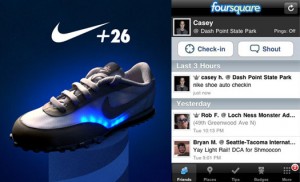Brands Planning for a Mobile Future @ The #Promise
Last week we attended The #Promise, a conference during New York's Internet Week that convened thought leaders and innovative brands to discuss how social and mobile media can create a better world. Each company was asked to present original social responsibility commitments called “promises.” Panels were curated by GOOD, TED, and Fast Company; speakers included everyone from Facebook co-founder Chris Hughes to actor Edward Norton. It was a day of inspired thinking and projection into a future where digital tools enable the masses. Some of the major themes and takeaways included:
At the very core of social change is a shift in how we connect, and mobile and social communications are the reason for transformation across industries. Nokia Futures Specialist Ville Tikka urged people to consider systems and social links affecting health, learning, advocacy, resilience, and livelihood.
We are living in the middle of a remarkable increase in our ability to share, cooperate with one another, and to take collective action, all outside the framework of traditional institutions and organizations.
- Clay Shirky, Here Comes Everybody
Corporations must rethink their offerings according to tomorrow's rules. Brands are positioning themselves around social movements and doing good; their hegemonic nature is evolving, opening up for an increasingly participatory culture. As Ogilvy planning director Evan Slater stated, "smart companies are being forced from policy makers to social enablers."
Large brands are evolving and preparing for the future. Pepsi's efforts are probably best publicized, the Pepsi Refresh Project looks to "scale good ideas" and "do good while selling product." With PepsiCo10, they demonstrate how giving away money is easy, but strategically allocating it for maximum impact is much harder. Timberland is planting trees in China, tying storytelling to their core logo. MTV educates viewers about sexting. In every effort there is the balance to be made between long-term thinking and instant shareholder gratification.
Companies are embracing mobile tools as a way to enable improvement on personal, local and global levels. Morsel, an iPhone application, promotes a healthier lifestyle through suggesting small achievable goals. GE's Linda Boff described this as "stealth health" and a simple way to change behavior for the better. Vscan is a pocket-sized ultrasound that opens up opportunities for rural doctors. FrontlineSMS simply enables two-way communication on a large scale, which has been particularly useful for NGOs in developing countries. The list goes on...
Of the many ideas discussed throughout The #Promise, the general consensus was that big change is underway, powered by personal technology. Andrew Rasiej expressed that through mobile technologies, humanity is being reshaped. "Humanity is going to ignore governments and think about solving problems on their own." We are in the process of filtering out the unacceptable and inefficient. Observing changing connections and adapting to the new rules is what will keep today's organizations around for tomorrow.
-
Kathy Sammons










